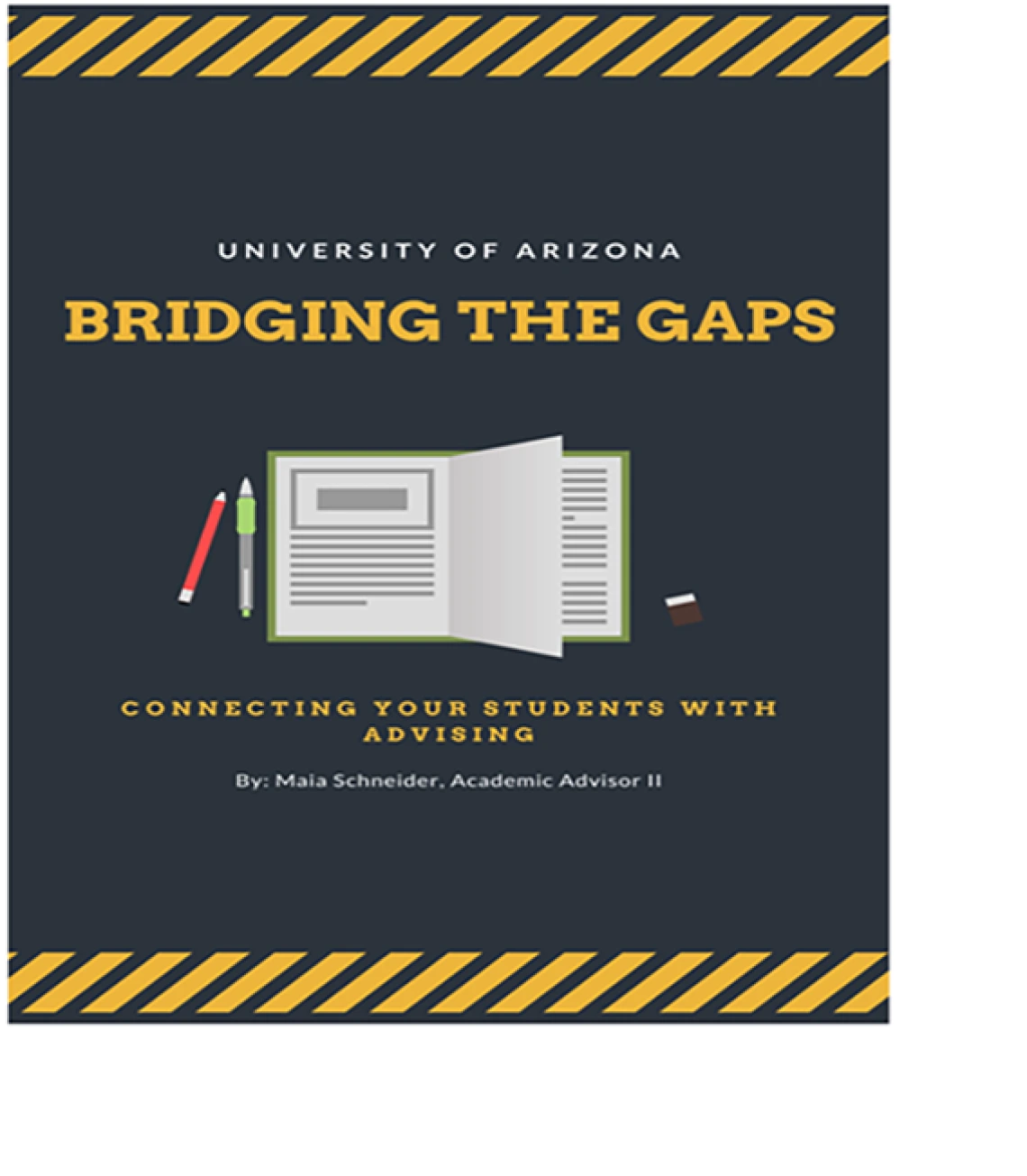Bridging The Gaps: Connecting Your Students With Advising

College is a unique experience for students as well as their parents and guardians - it’s a time where students are gaining their independence outside of their immediate family, but are still new to adulthood. One of the most important things you can do to support your students is to help them help themselves. The University of Arizona has a plethora of resources to foster student success, but navigating these resources and support systems can feel overwhelming. When students feel overwhelmed they often turn to their parents/guardians for advice, but you may not know the answers to all of their concerns. There are a lot of dates, policies, and systems to keep track of that change every year, and your student will need some individualized guidance outside of general policies. Fortunately, your student has at least one Academic Advisor who can help, and encouraging your students to meet with their Advisor(s) is one of the most helpful things you can do.
Academic Advisors live at the intersection of academics, administration, counseling, and customer service. We are here to support your students as they choose their classes, explore their career pathways, develop academic skills, prepare for graduation, calculate their grades, and navigate the university. Students are assigned one academic advisor for each major/minor they’re in, and they may have some additional advisors as well if they’re in programs such as the Honors College. If you or your students are unsure who their advisor is, they can check this information on their UAccess Student Center.
Your students’ Academic Advisor can answer most questions your students have outside of their coursework, but if your students ever have other questions they can still reach out to their Advisor! If we don’t have the answer to their questions, we know who does and can help make those connections.
There are several important things your student should be doing with their Academic Advisor at this point in the semester including:
- Meeting to prepare Winter 2021 / Spring 2022 courses. Even if your student has a sample plan for their degree, things can change and their exact schedule will likely differ somewhat from the sample plan. Meeting with their Academic Advisor prior to Winter/Spring registration (November 2021) is the best way to make sure they’re staying on track.
- Checking grades. By this point, your student should have enough grades in each of their classes to get a sense of where they stand. Their Academic Advisor can help them calculate their course grades if they aren’t sure how to do it themselves. Now is the best time to be checking course grades because there’s still time to make changes and improvements as needed!
- Appeals. Did your student lose federal funding last year? Did they have a rough semester last year that’s weighing down their GPA? Are they currently experiencing any concerns that are making it difficult to get through the semester? If so, your student may be able to file an appeal or some other documentation to get some support with these concerns and their academic advisor can help with this.
- Career development. Is your student graduating soon, or just thinking about ways to boost their resume? Now is a great time to start thinking about their job/internship search! Academic Advisors can help offer guidance as they search for opportunities. Student job/internship applications for Spring 2022 will open in Fall 2021, so now is the time to start having these conversations!
We ask that you help us help your students by referring them to their academic advisors as important dates (such as registration, course withdrawal deadlines, etc) approach or whenever they have questions. We want to help students, but we can’t know what they need if they’re not reaching out to us! You can also help us by letting your students know about Wayfinders - an Academic Advising initiative that brings advisors to students. We have pop-up advising in dorms, libraries, and other locations around campus, as well as workshops with campus partners to cover topics like financial literacy, class registration, and professional development.

